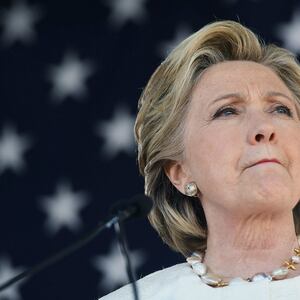Longtime Republican activist Peter W. Smith raised at least $100,000 from unidentified donors for a "scholarship fund…for Russian students" as part of an effort to obtain emails stolen by hackers from Hillary Clinton ahead of the 2016 presidential election, The Wall Street Journal reports.
Smith’s activities were first reported by the Journal in 2017, when federal investigators first began zeroing in on his financial transactions to determine whether he had paid any members of the Russian government as part of the effort. Smith’s activities have reportedly warranted special scrutiny because the opposition researcher himself is said to have told acquaintances he was working with Michael Flynn, who was then a top adviser to candidate-Trump and later went on to become one of the first former Trump aides to be indicted in Mueller’s ongoing Russia investigation.
New details revealed by the Journal on Sunday suggest Smith’s activities were far more extensive than previously known and may very well have involved Russian figures. Smith is said to have collected at least $100,000 from four wealthy donors and gone to great lengths to keep their identities secret, using encrypted email accounts and having his associates communicate with him by using the “Draft” folder in a Gmail account they all shared under the pseudonym “Robert Tyler.” Another $50,000 that went toward the so-called “Clinton Email Reconnaissance Initiative” was provided by Smith himself, according to the report, though it was not immediately clear if he acquired the money from other individuals.
One email reportedly referenced plans to give part of the money raised to a scholarship fund for Russian students. “This $100k total with the $50k received from you will allow us to fund the Washington Scholarship Fund for the Russian students for the promised $150K,” the Journal quoted the email as saying. The writer was identified only as “Rob,” and there does not appear to be any scholarship fund with that name offering assistance to Russian students. The email went on to include the cryptic message: “The students are very pleased with the email releases they have seen, and are thrilled with their educational advancement opportunities.” The email reportedly came shortly after WikiLeaks began releasing hacked Democratic emails.
The new details gleaned from Smith’s emails come after the arrest of accused Russian spy Maria Butina, who prosecutors say was brought to D.C. under the guise of “studying” but was actually busy infiltrating the NRA and Republican political groups as part of a covert Kremlin influence campaign. Butina’s activities were allegedly overseen by Alexander Torshin, a Russian central bank official previously actively in a cultural exchange program for students that federal investigators warned was actually a recruitment operation for Russian intelligence.
It was not immediately clear if federal investigators saw any link between Butina and Smith’s efforts.
Smith’s estate has reportedly provided documents to Mueller’s team as investigators continue to look into his activities, and his hard drives have been given to the Senate and House intelligence committees for their own investigations into Russian election interference. Documents reviewed by the Journal also showed that some of Smith’s associates were interviewed by federal investigators over the summer.
The opposition researcher took his own life in a Minnesota hotel room less than two weeks after speaking to the Journal in May 2017. Police in Minnesota have said there is no evidence to suggest anything other than suicide, and that Smith left behind a series of notes referencing health problems and a soon-to-expire life insurance policy. “NO FOUL PLAY WHATSOEVER - ALL SELF INFLICTED,” one of the notes read, according to The Chicago Tribune.
Read it at The Wall Street Journal






